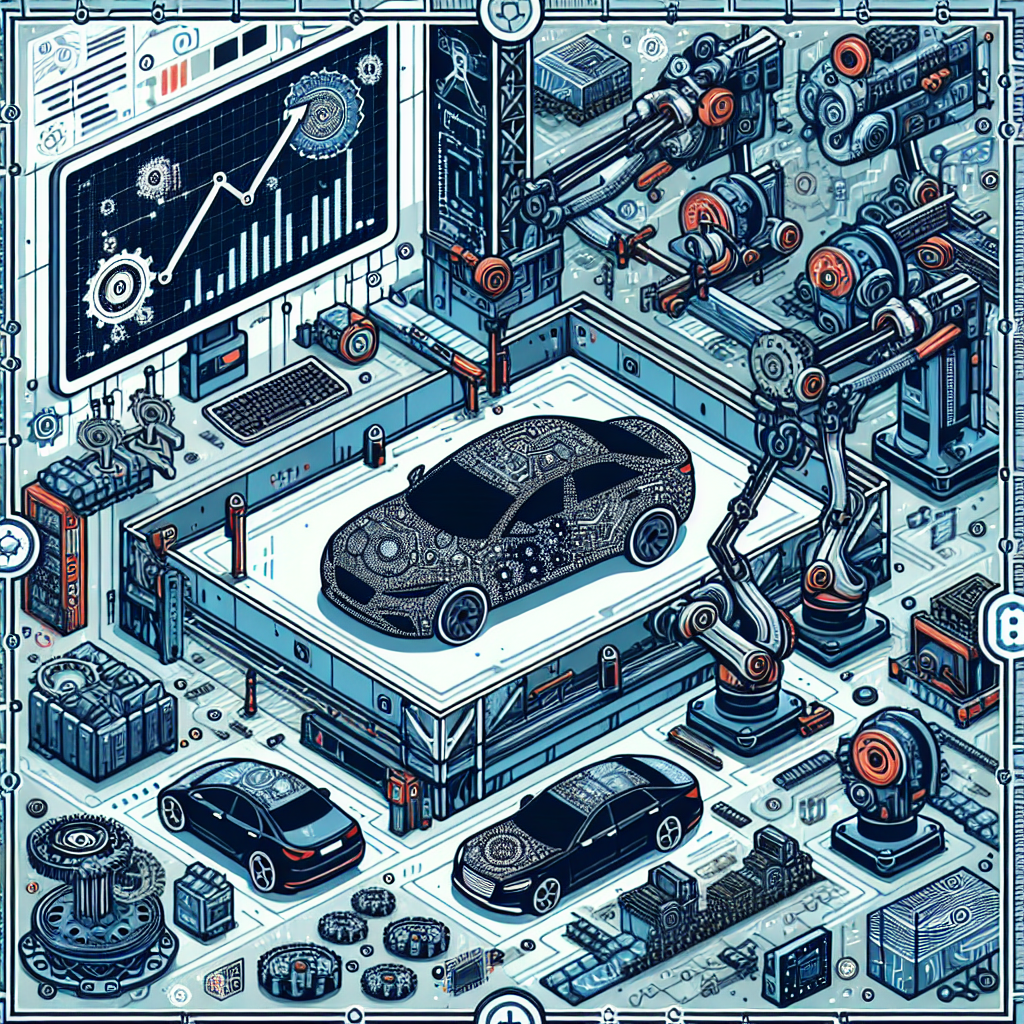The Impact of AI Integration on the Automotive Sector
Artificial Intelligence (AI) has revolutionized various industries, and the automotive sector is no exception. The integration of AI technology in the automotive industry has brought about significant changes in the way vehicles are designed, manufactured, and operated. From self-driving cars to predictive maintenance, AI has the potential to transform the automotive industry in ways that were previously unimaginable.
AI Integration in Vehicle Design and Manufacturing
One of the most significant impacts of AI in the automotive sector is in the design and manufacturing of vehicles. AI algorithms can analyze massive amounts of data to optimize vehicle design, improving fuel efficiency, safety, and overall performance. By using AI, manufacturers can identify patterns and trends in customer preferences, enabling them to create vehicles that meet the needs and expectations of consumers.
AI is also being used in the manufacturing process to improve efficiency and reduce costs. Robotics and automation powered by AI technology have streamlined production lines, resulting in faster production times and higher quality vehicles. AI-powered machines can perform tasks that are too dangerous or labor-intensive for humans, improving worker safety and reducing the risk of errors in the manufacturing process.
Self-Driving Cars and AI
Perhaps the most well-known application of AI in the automotive sector is in self-driving cars. AI algorithms power the sensors and cameras in autonomous vehicles, enabling them to navigate roads, avoid obstacles, and make decisions in real-time. Self-driving cars have the potential to revolutionize the transportation industry, making roads safer, reducing traffic congestion, and improving the overall driving experience for consumers.
AI Integration in Predictive Maintenance
Another important impact of AI in the automotive sector is in predictive maintenance. By using AI algorithms to analyze data from sensors embedded in vehicles, manufacturers can predict when components are likely to fail and schedule maintenance before a breakdown occurs. This proactive approach to maintenance not only reduces downtime and repair costs but also improves the overall reliability and performance of vehicles.
AI-Powered Customer Service and Personalization
AI technology is also being used to enhance customer service and personalize the driving experience. Chatbots powered by AI algorithms can provide customers with instant support and assistance, improving customer satisfaction and loyalty. AI can also be used to personalize the driving experience by analyzing data on a driver’s behavior and preferences, adjusting settings such as seat position, climate control, and music playlists to create a more comfortable and enjoyable driving experience.
FAQs
Q: How is AI technology being used in self-driving cars?
A: AI algorithms power the sensors and cameras in autonomous vehicles, enabling them to navigate roads, avoid obstacles, and make decisions in real-time.
Q: How does AI improve vehicle design and manufacturing?
A: AI algorithms can analyze massive amounts of data to optimize vehicle design, improve fuel efficiency, safety, and overall performance. In manufacturing, AI-powered robotics and automation streamline production lines, resulting in faster production times and higher quality vehicles.
Q: How does AI help in predictive maintenance?
A: AI algorithms analyze data from sensors embedded in vehicles to predict when components are likely to fail and schedule maintenance before a breakdown occurs, reducing downtime and repair costs.
Q: How is AI used to personalize the driving experience?
A: AI technology can analyze data on a driver’s behavior and preferences to adjust settings such as seat position, climate control, and music playlists, creating a more comfortable and enjoyable driving experience.
In conclusion, the integration of AI technology in the automotive sector has brought about significant advancements in vehicle design, manufacturing, self-driving technology, predictive maintenance, customer service, and personalization. As AI continues to evolve and improve, we can expect to see even more innovations in the automotive industry that will enhance the driving experience for consumers and improve the overall efficiency and performance of vehicles.

